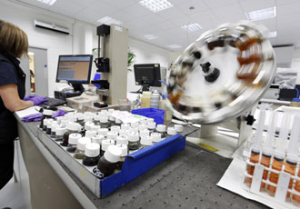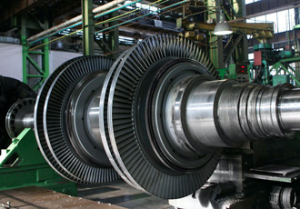The efficient way to maintain engine health

American novelist, Kurt Vonnegut once said “another flaw in the human character is that everybody wants to build and nobody wants to do maintenance”. In our daily work in engineering we know this to be true in many cases. However, only by maintaining what’s been built can we keep industrial operations running. Here, Steve Haughton, Technical Manager at DiPerk, explains some common causes of engine failure, how to detect them and engine health.
Some of the most common problems that can occur in diesel engines are fuel dilution, coolant leaks and injector fouling. These issues become even more pronounced when engines are used rarely, such as in stand-by applications, as they can be left unnoticed for long periods of time and therefore become so serious that they destroy the engine when it is next used.
For back-up generators, this means the engine could fail when it is most needed. This is why regular maintenance and an accurate understanding of an engine’s health is not an added benefit, but a necessary step in ensuring reliable power.
Fuel dilution
Fuel pumps circulate fuel through the injection system at high pressure. When this, or any other aspect of the fuel injection system leaks, the fuel can enter the lubrication system of the engine, diluting the engine oil. This can happen for a variety of reasons including incomplete combustion from injection pressure being out of specification, wear on the piston compression rings & cylinder liner or excessive idle time.
Fuel dilution reduces oil viscosity, meaning that moving parts in the engine will be poorly lubricated and more susceptible to wear. Poor lubrication may also open the door to corrosion on surfaces that are central to the engine’s functioning, such as the crankshaft journals and camshaft lobes.
Coolant leaks
If the coolant system is neglected, corrosion can lead to build-up of sediment and eventually cause blockages in the radiator, jacket and oil coolers. With the cooling system compromised, the engine overheats, which can lead to damage to internal parts.
Occasionally, coolant can leak into the engine’s lubrication system, contaminating the oil and thickening it, exposing moving parts and surfaces to wear. This happens when glycol, an organic chemical contained in the coolant, reacts with the oil and increases its’ viscosity, clogging filters and adversely affecting the flow of oil. This, mixed with overheating, can lead to catastrophic, and potentially violent, bearing failure.
Injector fouling
The nozzles in a modern fuel injector are a just a few microns across, to ensure the atomisation of fuel into very small droplets that maximise combustion efficiency. When fuel is high temperatures at high pressures and temperatures during combustion, a concentration of more than just two parts per million of Zinc can cause solid by-products to build up and block the injector holes. The engine runs less efficiently as a result and, as the nozzles are extremely difficult to clean, operators are forced to buy a new fuel injector.
How fluid analysis helps
Regular analysis of fuel, oil and coolant samples from the engine can detect changes in the oil’s viscosity, as well as detect trace metals from wear of parts and surfaces, so operators can understand what is happening inside their engines. Because every component in the engine has a unique metallurgy & rate of wear, engineers can identify which parts are most likely to be damaged. To benefit from this insight, operators can submit their samples regularly to a specialist fluid laboratory, such as DiPerk’s in Leeds, UK.
From this data, DiPerk will produce reports with a recommendation of actions including repairs and how to keep fuel dilution, leaks and injector-fouling in check. This will enable engineers to analyse data over a wider range of time, helping farmers avoid expensive repairs.
A flaw in human character doesn’t have to lead to flaws in engine maintenance. Occasional wear is inevitable and is difficult to minimise, which is why maintaining the first barrier of defence against corrosion and internal leaks is essential for a reliable use of engines. With regular fluid analysis, operators can be confident that they are doing all they can to safeguard their equipment.
Similar articles
More from DiPerk
- A virtual tour of an engine workshop 22nd March 2021
- The efficient way to maintain engine health 13th October 2020

-(1)ed.jpg)










Write a comment
No comments